ARTICLE AD BOX

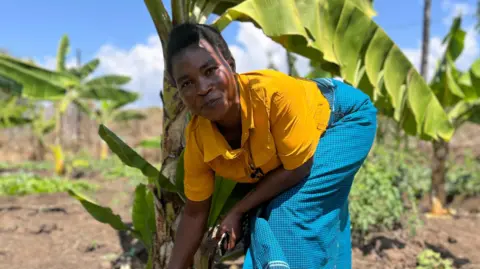 Anne Okumu/BBC
Anne Okumu/BBC
A small-scale farmer in northern Malawi, Emily Nkhana used to discard over-ripe bananas or just let them rot, but she has now found a profitable use for them - banana wine.
Extreme heat was causing bananas to ripen too quickly, resulting in heavy losses for Ms Nkhana and many other farmers who live in Karonga district.
“Then we discovered how to make banana wine,” she tells the BBC, as she peels lemons that would be used to preserve the taste of bananas at the processing plant of Twitule Cooperative Group.
For the farmers, it is not just about making wine - but also survival, resilience, and embracing the new possibilities that come with a changing climate.
They used to farm next to the shores of Lake Malawi and their banana plantations were being washed away by rising water levels due to increased rainfall, forcing them to move to higher but hotter grounds, where temperatures soar to 42C.
“Down at the old farm, our challenge was loads of water from the lake. Some of the bananas used to drown in water. Some, you couldn't even see where we planted.

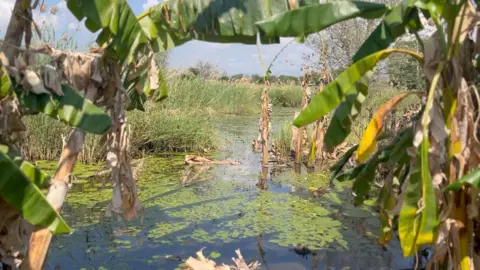 Anne Okumu/BBC
Anne Okumu/BBC
Lake Malawi is the second largest lake in Africa
“Up here, we have way too much heat. It makes our bananas ripen very fast and go to waste,” Ms Nkhana says.
She is part of a group of women who have come together at the cooperative to improve their economic conditions through farming.
Wine production is a small-scale venture in the women’s backyards, where they plant banana crops.
The wine-making process happens in a small compound with a four-roomed house in the village of Mchenjere.
The process is simple: the overripe bananas are peeled, cut into small pieces, weighed, and mixed with sugar, yeast, raisins, water and covered with lemons.
The mixture is then left to ferment for several weeks, transforming the banana pulp into a potent, aromatic wine, containing 13% alcohol - similar to wine made from grapes.
“It’s very good quality wine. You have to drink it while seated so you can enjoy the sweet flavour,” Ms Nkhana says.

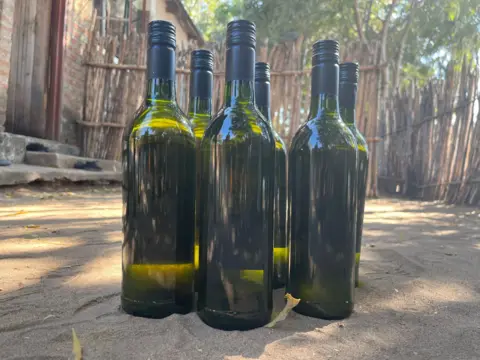 Anne Okumu/BBC
Anne Okumu/BBC
The women are waiting for the wine to be approved for export
Banana wine might sound unusual to those accustomed to the flavours of traditional wine, but for those who have tasted it, the experience is anything but disappointing.
The wine, which can range in colour from pale yellow to a rich amber, has a slightly sweet, fruity taste, often accompanied by a subtle aroma and a light lemon and banana flavour.
“It’s smooth and light, almost like a dessert wine,” says Paul Kamwendo, a local wine enthusiast who has become one of the biggest fans of banana wine in Karonga.
“I had no idea one could make wine out of bananas.”
For Ms Nkhana and her colleagues, the key to a good banana wine lies in the balance of sweetness and acidity.
“Timing is everything,” she says. “You have to know when the bananas are at their best. Too ripe, and the wine becomes too sweet; too green, and it’s too tart.”

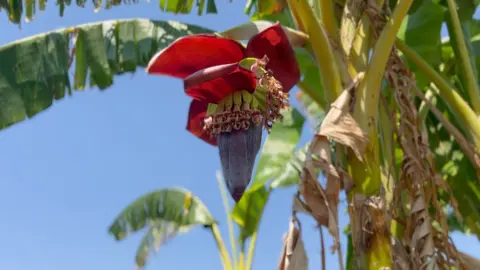 Anne Okumu/BBC
Anne Okumu/BBC
Bananas take around 10 months to grow in Malawi
The rise of banana wine in Malawi has been met with enthusiasm from both producers and consumers.
At local markets, bottles of banana wine, which sell for $3 (£2.30), are now a common sight, with vendors eager to showcase their latest creations.
“We sell them at markets across Malawi, in the capital Lilongwe and in the biggest city Blantyre and it is always sold out,” says Tennyson Gondwe, the chief executive of Community Savings and Investment Promotion (Comsip), a cooperative that has trained the women in wine production to ensure quality and taste.
Ms Nkhana says that making wine, rather than just selling raw bananas which often go to waste, has transformed her life, and those of the other women.
"Some of us built houses, some have livestock and some have chickens. We can afford to eat decent meals."
The Twitule co-operative produces between 20-50 litres of wine a month and is hoping to buy machines to help them expand.
"We want to produce more wine. We want to move from this small production house house to a factory," Ms Nkhana says.
And the group has even bigger plans - Comsip has asked the Malawi Bureau of Standards to approve it for export.
“People are curious,” Ms Nkhana says, smiling as she stirs the wine mixture, preparing it for fermentation.
“They want to know what it tastes like. And when they try it, they’re surprised by how good it is.”

 4 months ago
20
4 months ago
20
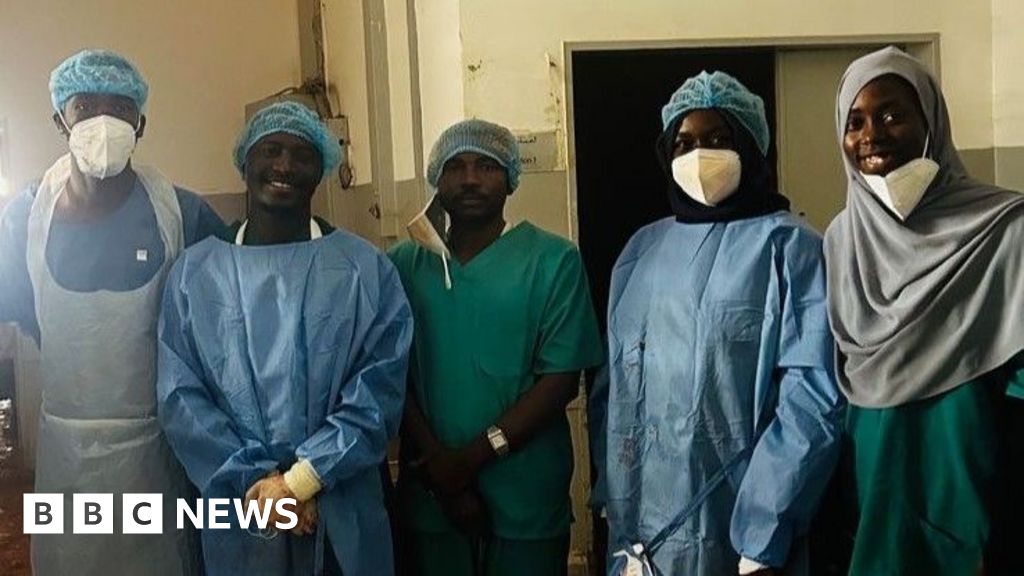







 English (US) ·
English (US) ·